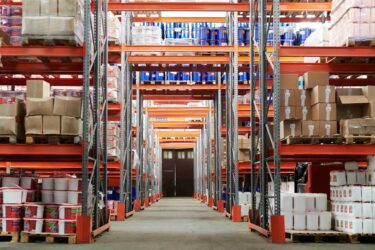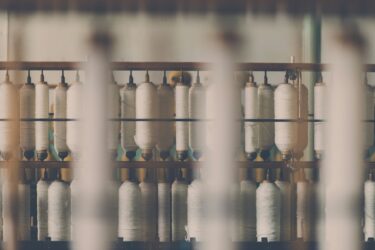
Contents
- How does it impact brands?
- Updates from the Textile Exchange
- Six steps to getting certified
- What are the benefits of brand certification?
- Anthesis support
- Contact us
Share this article
In the face of increasing consumer and investor pressure, and with new legislation enforcing greater due diligence on sustainability reporting and claims, brands are under increasing pressure to provide evidence of due diligence taken to assure sustainability claims.
In response, some of the certified material standard owners are tightening their chain of custody rules, and in some cases, brands will now require certification if using the standards on labelling and marketing.
How does it impact brands?
To become brand certified, companies that are involved in the design and production of finished goods (retailers buying finished products are exempt from this requirement), will need to pass a 3rd party audit from an approved certification body, and annual audits thereafter.
To pass an audit, brands need to prove that they understand the requirements of the standards and have the required systems and processes in place to correctly handle certified goods and, crucially, maintain the integrity of the certified products from point-of-purchase to point-of-sale.
Updates from the Textile Exchange
From 1st April 2023, brands wanting to use the Textile Exchange logos or mention the standards on products or marketing will require brand-level certification and certification bodies will cease approval of any new labelling claims using garment factory licence numbers.
Brands can meet this requirement by becoming certified, or pursuing certification by agreeing to a contract for an audit with a certification body and registering on the Textile Exchange’s portal by the 1st April deadline. Brands that are pursuing certification must pass their audit by 1st July 2023 and all existing labels and claims using the Textile Exchange logos must be reapproved using the brands’ new licence number.
- Some standards already require brand-level membership or certification – for example, Global Organic Textile Standard (GOTS) mandates certification up to brand level under certain conditions (e.g., if you are wholesaling GOTS goods over a value of 20,000 Euros).
- The Textile Exchange standards, Better Cotton and GOTS standards are all under revision and will likely have new requirements this year.
- The certification landscape isn’t standing still; new sustainable certifications reflecting the changing sustainable materials space are in work and new technologies to manage brands’ certification portfolios are coming online.
Six steps to getting certified
- Determine which standards you want to be certified to, which products you want to be certified, and what overarching sustainability goals they will connect to.
- Establish a project team to prepare and oversee the audit process.
- Read the standard documents to familiarise yourself with the requirements.
- Analyse how ready your business is for certification.
- Engage a certification body and schedule your audit.
- Prepare for your audit to ensure success and reduce audit costs.
What are the benefits of brand certification?
Certifications help companies and consumers to verify sustainability claims. Where certification is required at the brand-level, becoming certified allows brands to use the standard logos on product labels and marketing to assure customers and regulators that products contain what they say they do and are produced in the claimed conditions.
How can Anthesis support you?
- Navigating the ever-changing certification landscape: which standards require brand certification and what do you need to do to comply?
- Benchmarking and prioritisation: which standards fit your brand and where should you focus efforts?
- Certification strategy and road-mapping: defining how your brand can maximise the benefits of certification to support your sustainable material goals.
- Audit readiness: gap analysis & recommendations for audit preparation
- Brand certification implementation: getting policies, procedures and systems in place for audit and beyond.
- Capacity building: ensuring your teams and supply chain understand the requirements and opportunities of the certification standards.
We are the world’s leading purpose driven, digitally enabled, science-based activator. And always welcome inquiries and partnerships to drive positive change together.




